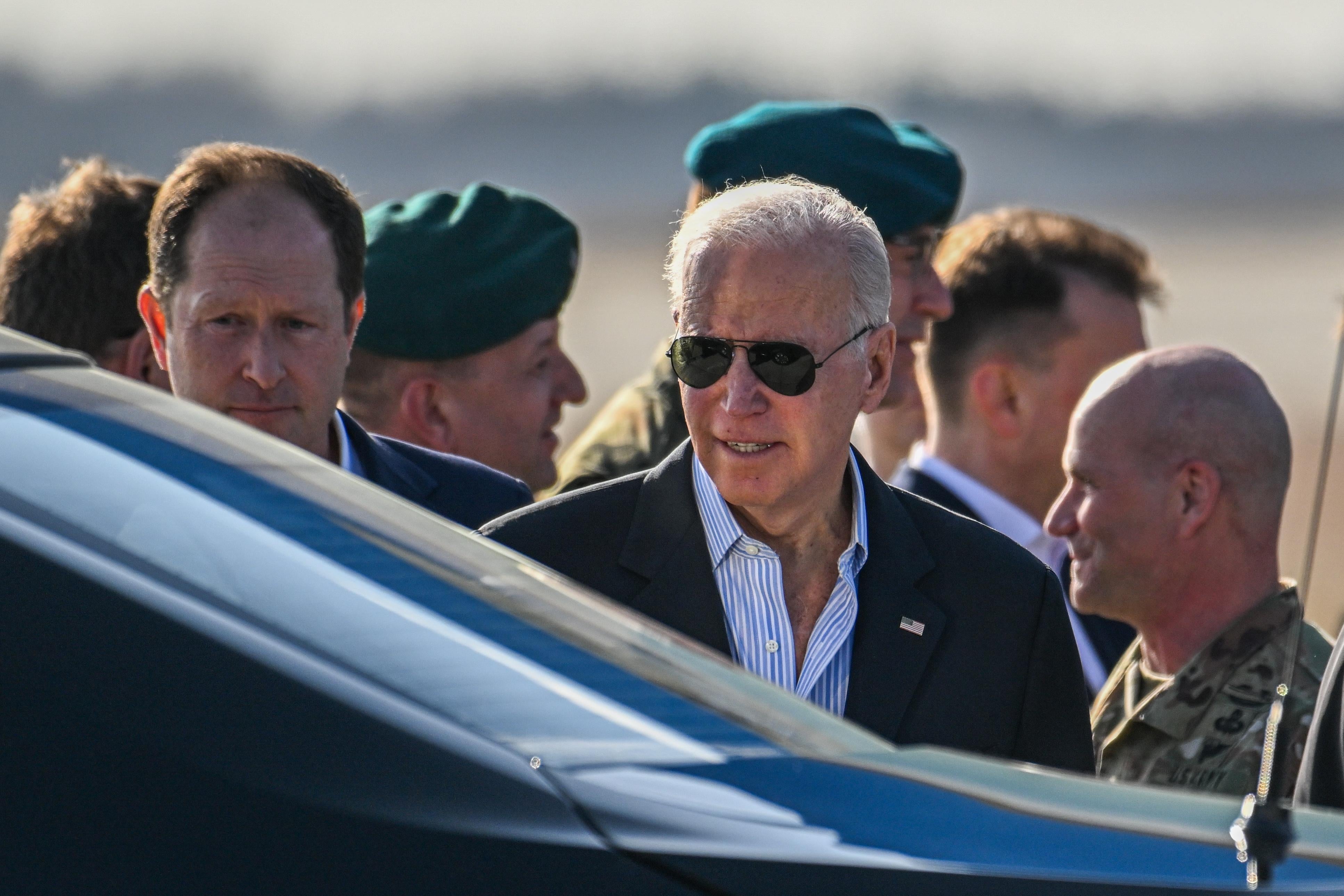For all the talk about the possibility of Russia launching nuclear weapons if things get desperate enough in Ukraine, it is often overlooked that the United States has long had a similar policy of not taking nukes off the table.
This history is set to continue with President Biden’s upcoming Nuclear Posture Review, which states that the “fundamental purpose” of nuclear weapons is to deter an enemy from attacking us with nuclear weapons—but that this is not their “sole purpose.”
The distinction is more profound than it might seem. Essentially, it means that the U.S. might use nuclear weapons first in a crisis or a war, if our vital interests were at stake.
For many years, some arms-control activists have argued that the U.S. should adopt a “no-first-use” policy, for several reasons. First, it would be immoral to violate the “nuclear taboo,” which has been in place and observed by all since 1945. Second, declaring such a policy might encourage other countries to do the same—or at least discourage them from building their own nuclear arsenals. Third, since our conventional forces are superior to those of our adversaries, we wouldn’t need to resort to nukes in the course of fighting a conventional war.
President Obama held two National Security Council meetings to consider the question. He personally believed that no American president would ever use nuclear weapons first. But some of his advisers, notably Secretary of Defense Robert Gates, persuaded him not to declare that fact as formal policy, for two reasons. First, some countries, including Russia, had biological weapons, which could be nearly as devastating as nukes if they used them. Yet because we no longer have bio-weapons, we couldn’t “retaliate in kind.” Threatening to retaliate with nuclear weapons might deter them from launching a bio attack—so why give up that option?
Second, Gates argued, our allies would have a fit. To a degree that most Americans don’t grasp, nuclear weapons remain a centerpiece of our guarantee that we will come to the defense of our allies if they’re under attack. This concept is called “extended deterrence” (the basic idea of deterrence—we’ll attack the enemy if the enemy attack us—extended to our allies) or the “nuclear umbrella” (we’ll use nukes to protect an ally just as we’d use them to protect ourselves). Sure enough, when word leaked that Obama was even considering a no-first-use policy, the Japanese foreign minister called the White House in a panic. When President Trump talked about folding up the umbrella, Japanese leaders seriously mulled building a nuclear arsenal of their own. In other words, far from encouraging others to forego nuclear weapons, a no-first-use policy might encourage some to dive in.
Obama somewhat reluctantly agreed with Gates and came up with a clever compromise. The final draft of his Nuclear Posture Review stated (in a passage that he personally wrote) that the U.S. would not use nukes first against a country that (a) did not possess nuclear weapons and (b) was abiding by the Non-Proliferation Treaty. This would still keep first-use on the table against Russia, China, North Korea, and (if it ever built any nuclear weapons) Iran—while possibly assuring other countries that they didn’t need nukes to deter a U.S. attack. In this sense, Obama saw that deterring a nuclear strike was the “fundamental purpose” of nuclear weapons—the same phrase that Biden is invoking in his Nuclear Posture Review. (Biden has briefed the review to allies; it will be published in the coming weeks.)
Until press reports of the review this week, some had hopes—or apprehensions—that Biden would move U.S. policy closer to no-first-use. On Jan. 11, 2017, nine days before the end of his term as Obama’s vice president, Biden said, in a speech (which I’m told Obama approved):
Given our non-nuclear capabilities and the nature of today’s threats, it’s hard to envision a plausible scenario in which the first use of nuclear weapons by the United States would be necessary—or make sense. President Obama and I are confident we can deter—and defend ourselves, and our Allies, against—non-nuclear threats through other means… [He] and I strongly believe we have made enough progress that deterring—and, if necessary, retaliating against—a nuclear attack should be the sole purpose of the U.S. nuclear arsenal. [Italics added.]
(White House staffers had written the speech as a possible farewell address for Obama. But he decided, after Trump won the election, that it would be better to talk about the threat to American democracy.)
It’s a fair guess that, like Obama, Biden doesn’t really believe that he—or perhaps any other American president—would actually use nukes first. However, also like Obama, he has been persuaded that he can’t say this out loud as formal U.S. policy without throwing doubt on our security guarantees and unraveling our alliances. This is especially the case after Russia’s invasion of Ukraine, when he needs to stiffen those guarantees and shore up those alliances more than ever.
Obama’s Nuclear Posture Review addressed the dilemmas of a first-use policy within the framework of a desire to “reduce the role of nuclear weapons in deterring non-nuclear threats.” The Trump administration overturned that framework in its review, stating that nuclear weapons were good for deterring a wide range of threats—including several non-nuclear ones—and emphasizing the need to “integrate” nuclear and non-nuclear warfare in U.S. military doctrine, training, and exercises.
At least Biden seems to be returning to the relative restraint of Obama’s policy review. But I emphasize “relative restraint,” for the idea of using nuclear weapons to deter—and to retaliate against—non-nuclear threats is still very much on the table, a fact that is true for all the nuclear powers, whether they say so or not.
